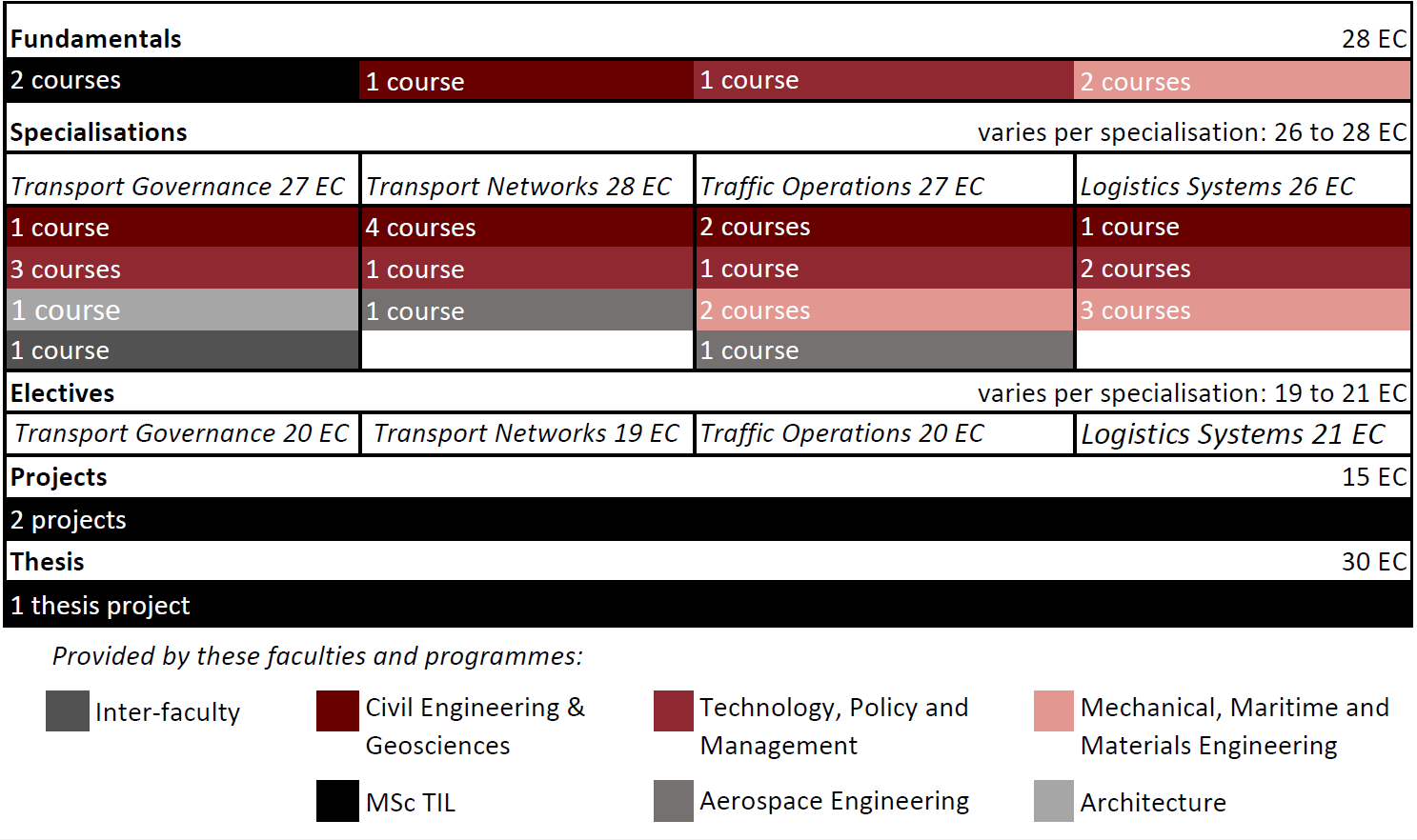Introduction to the programme
Transport, infrastructure and logistics are shaping our daily lives. Without it, our complex economies, cities and societies are simply inconceivable. Every day we take the bus, train or our cars and drive over interconnected systems of road infrastructure, rail- or tram networks. We go to shops and buy products that were produced, manufactured and distributed across all continents over all conceivable transport networks, over water, land or via the air. And even within large or small industrial complexes, again transport plays a fundamental role. Think of the automated baggage handling at international airports, fully automated production chains or automated container terminals at large harbours. Transport is everywhere, 24/7, 365 days! And transport is not just a means to an end in our daily practice, it also influences heavily how we plan our environment and our economy, how politicians determine policies and how you, me and every one make choices about where we live, where we work, which activities we undertake and how we spend our lives.
Why TIL?
Transport, infrastructure and logistics is by nature a multi- and interdisciplinary field. Unfortunately, it is fragmented into many specialized sub-disciplines, each with their own vocabulary, paradigms and theories. For example, logistical engineers may view an urban transport network as just "another" link in a complex network of supply chains, whereas urban planners may consider transport networks as instrumental in their planning of modern cities and landscapes. Civil engineers on the other hand consider transport networks as the central (vascular) network which enable complex economic, social and spatial activities and processes. Of course, they all have a point. But wouldn’t it be great if urban planners, policy makers and traffic and transport engineers had a common understanding of all these differences and vocabularies? The TU Delft MSc Master’s Programme in Transport, Infrastructure and Logistics (TIL) offers exactly this!
TIL = a great toolkit
TIL is a comprehensive MSc programme, which provides graduates with that broad knowledge and skills over the entire TIL domain. That doesn’t imply you specialize in everything! You are a generalist in the first place and you choose one of four specializations, alongside a large number of other courses at your disposal. But throughout the TIL curriculum you are obliged to work in interdisciplinary projects and courses, with students who have different backgrounds and specializations. Just like in the real world. For example, you might specialize in policy analysis and spatial planning and work on new sustainable mobility for the Rotterdam area. You will do this project together with students specializing in transport network design, or advanced traffic management and technology, and/or students specialized in automation of container handling. Collaboration over these disciplines is necessary, productive and fun!
So how does it work, TIL?
The MSc programme TIL offers you courses and projects to acquire knowledge, insights, and skills in the broad area of traffic (the movement of vehicles), transport (the movement of passengers and freight), infrastructure (roads, railways and harbours) and logistics (the organisation behind freight movements and transhipments both within and between industrial complexes).
First of all you follow a number of joint courses (the so-called fundamentals and the TIL seminars). Next you choose one of four specializations and complement your programme with a broad list of recommended electives. In doing so, you’ll find yourself in lecture halls and coffee corners in all three participating faculties and even other ones. The final stage of the programme brings you to the TIL interdisciplinary design project and the master thesis project.
Specialisations
Specialisations are packages of courses with a common theme or application domain. Students must choose one out of four specialisations.
Transport Governance
- Transport, spatial and environmental policy
- Assessment and evaluation of transport policies and infrastructure plans
- Effects of transport: accessibility, environmental, safety
- Economic impacts of infrastructure and spatial planning
Transport Networks
- Transport systems and services
- Infrastructure network design
- Design of multi-modal transport networks (links, nodes, hubs, interfaces, hierarchy, etc.) under spatial and policy constraints
Traffic Operations
- Operational management and control of traffic
- Advanced technologies
- Methodologies (traffic flow theory, and models, simulation, control theory, etc.)
Logistics Systems
- Control and optimisation of transportation and production systems
- Supply chains engineering in closed (industrial) and open transport networks (e.g. road networks, nodes)
- Machines in a logistic context
The MSc programme Transport Infrastructure and Logistics is offered jointly by three faculties:
OpenCourseWare
Master Transport, Infrastructure and Logistics


